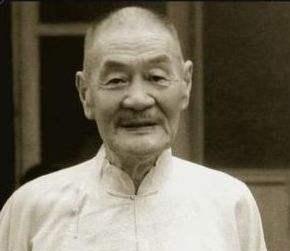At that time, he and the famous Liao Zhongkai were known as Sun Yat-sen's right and left arm, and he was born and died in the revolutionary cause of striving for national independence and self-reliance. His name, on the other hand, is very unfamiliar to contemporary people, which is extremely incompatible with his contribution, he is Ding Weifen.

Ding Weifen, a native of Rizhao City, Shandong Province, whose father, Ding, made a living by teaching private schools, and although he was a dashed talent, he greatly admired the Western democratic system and often instilled democratic republican ideas in his descendants.
Under the influence of his father, Ding Weifen entered the Faculty of Law of Meiji University in Japan in 1904. The following year, he joined the newly formed Chinese League branch and was elected as one of the main allies of the Shandong branch, responsible for contacting revolutionary comrades in Shandong Province. At that time, more than 400 students studying in Japan joined the League, and Shandong accounted for 1/8, which shows the weight of Sun Yat-sen's "Ding Ding is Lai".
In the spring of 1907, Ding Weifen returned to China, served as the principal of the Shandong Political Science and Law College, secretly developed the members of the League, established grass-roots organizations, and trained a large number of revolutionary volunteers.
Later, Ding Weifen actively supported Sun Yat-sen's three major policies, assisted Sun Yat-sen in reorganizing the Kuomintang, and took charge of the Kuomintang's party affairs for a long time. In 1923, Ding Weifen was ordered by Sun Yat-sen to set up the North China Executive Department of the Kuomintang in Beijing to undertake the development of the Kuomintang in the north. In 1924, Ding Weifen developed 14,000 party members, and there were more than 2,000 in Shandong province alone. Because the proportion of party members developing in the north is the largest, it is also said that the Ding family party in the Jiang family is the world.
Another major contribution of Ding Weifen was to raise a Nobel Prize winner, Ding Zhaozhong. Ding Zhaozhong's mother, Wang Junxiu, was a descendant of Wang Yicheng, a martyr of the Xinhai Revolution. After her father's death, 4-year-old Wang Junying was adopted as a righteous daughter by Ding Weifen and provided her to go to the University of Michigan in the United States for further study and master's degree.
While in the United States, Wang Junying met Ding Guanhai and married. In January 1936, Wang Junying gave birth to his eldest son, who was named Zhaozhong. In December 1976, at the Nobel Prize Hall in Stockholm, Ding Zhaozhong delivered his acceptance speech in Chinese. For the first time, the Chinese language resounded in the Nobel Prize Hall, and this moment became the pride of Chinese people around the world.